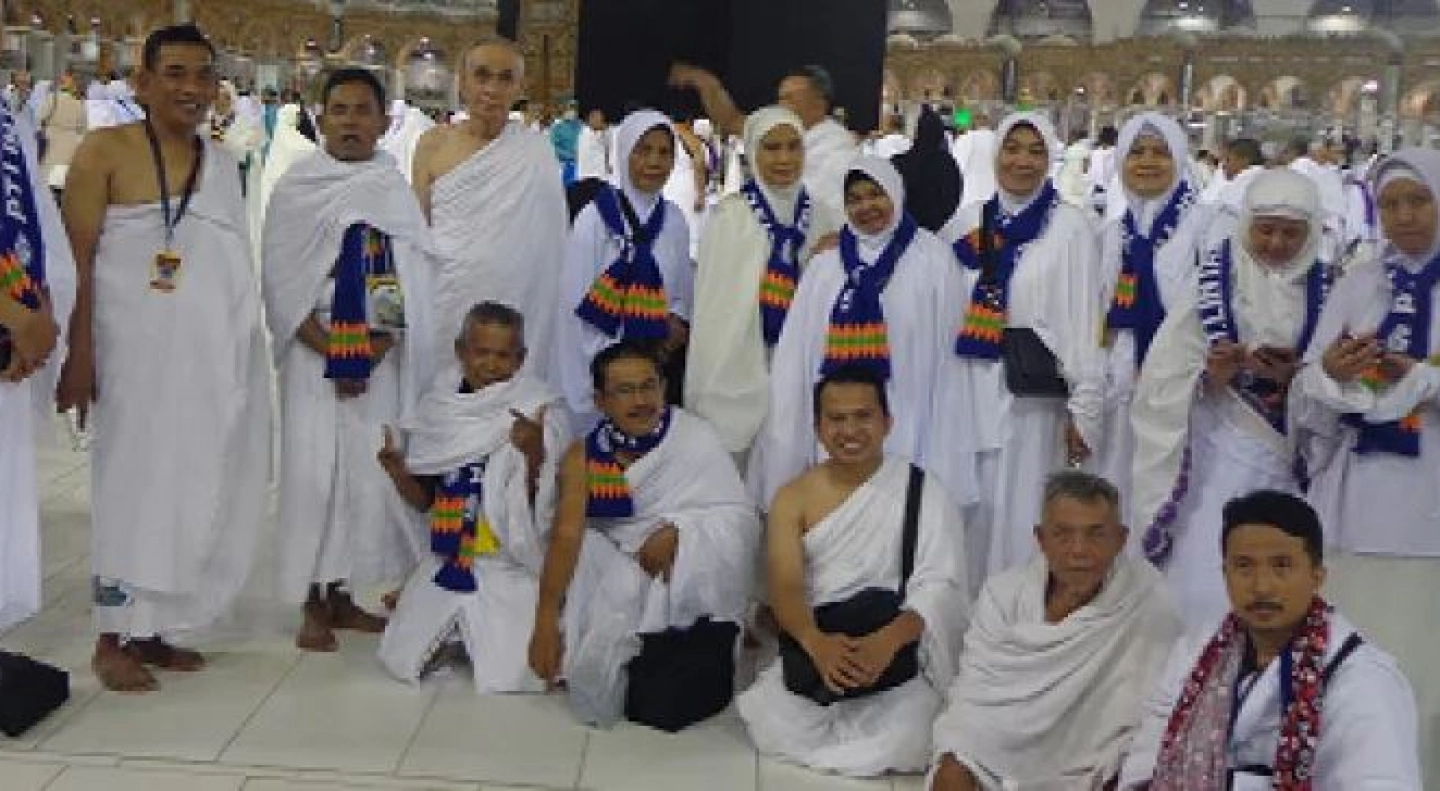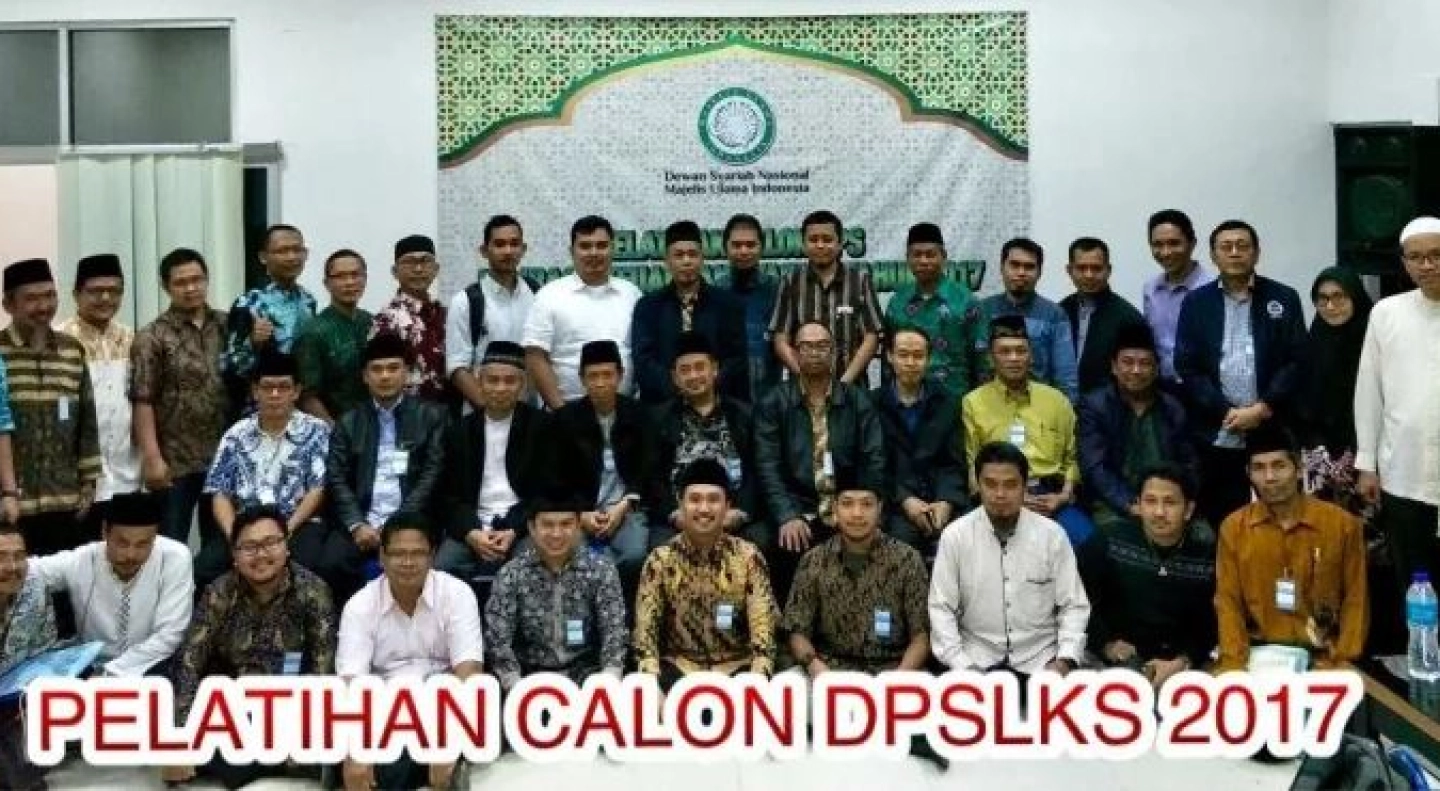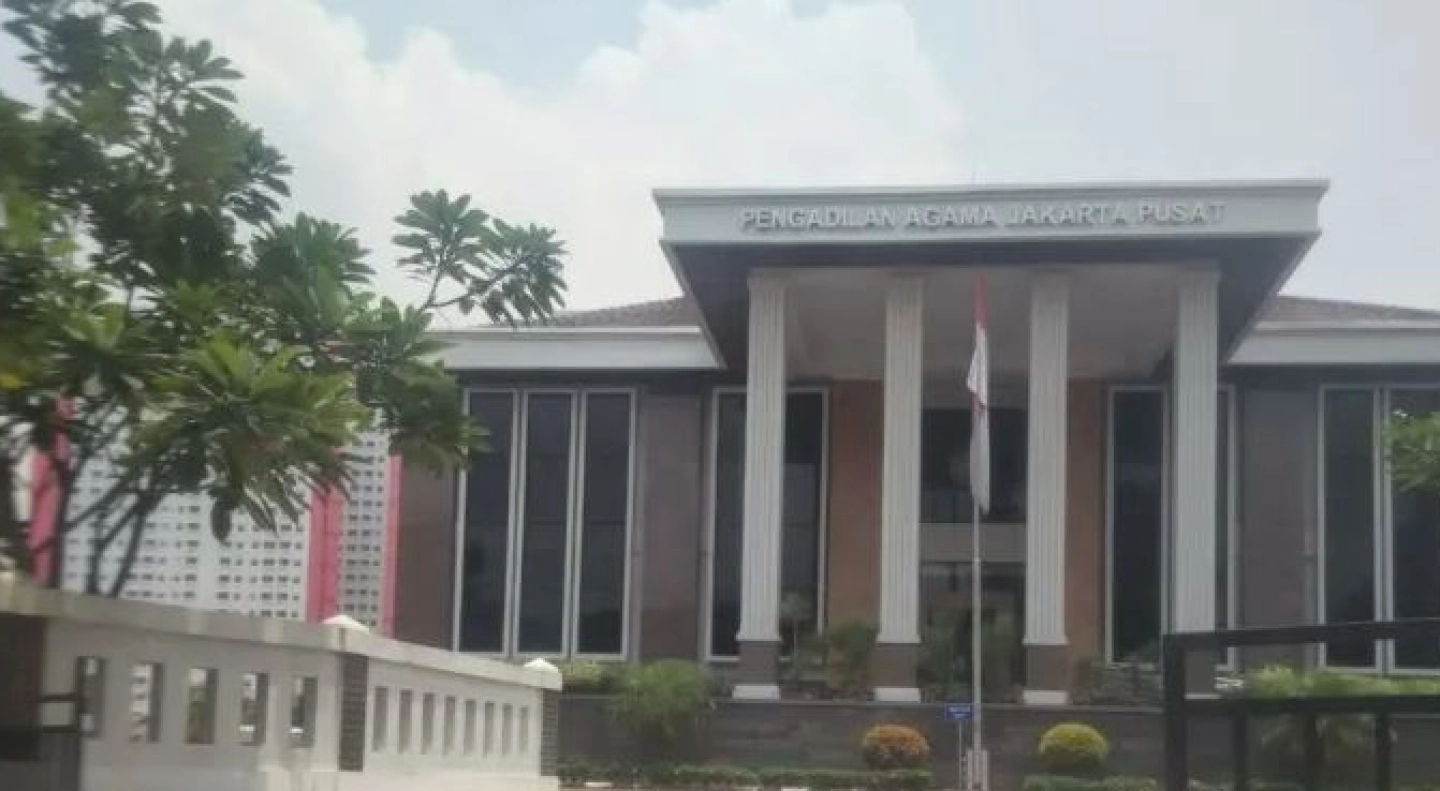Publication
 DSP & FAMILY IMPLEMENT UMRAH Author: DSP Team
DSP & FAMILY IMPLEMENT UMRAH Author: DSP Team Towards the end of 2018, as a form of gratitude the DSP Team and their families performed the Umrah worship, this worship in addition to being a form of gratitude also serves as a shield in controlling themselves so that the DSP Team can be more wise and prudent and base all tasks as part of a series of worship, so not merely orientation to worldly values. This Umrah activity insa'allah will become an annual routine program for the entire DSP Team.
 DSP PARTNERS PASSED AS A SHARIA SUPERVISORY BOARD
DSP PARTNERS PASSED AS A SHARIA SUPERVISORY BOARD On December 07 -09 2017, DSP Partners have participated in the 2017 Sharia Financial Institution Members Board DPS Training, organized by the National Sharia Council-MUI. Candidates for DPS Members of Financial Institutions include:
1. Get to know DSN-MUI and DPS
2. Introduction to Islamic Banking
3. Murabahah and Istisna contracts
4. Mudharabah and Musyarakah contracts
5. Ijarah, Ijarah Multijasa, and IMBT
6. Pawn Contract (Rahn and Qard)
7. Fines (ta'zir) and Compensation (Ta'widh)
8. Usul Fiqh
9. Qawaid Fiqhiyah
10. Basic principles of muamalat
11. Sharia agreements (DSN fatwa and basic contracts)
12. Sharia Banking Regulations
13. Sharia Deed of Agreement
14. Sharia Opinion
15. Sharia Accounting
16. Syariah Marketing Concepts and Practices
17. Standard Operating Procedure (SOP)
18. New Product Simulation and Pick Test Evaluation.
Alhamdulillah, during the training 2 (two) DPS Partners have been declared PASS, thus it can be valuable capital in increasing competence in understanding sharia business agreements to support the Sharia Financial Industry which is applied to DSP legal services to clients.
1. Get to know DSN-MUI and DPS
2. Introduction to Islamic Banking
3. Murabahah and Istisna contracts
4. Mudharabah and Musyarakah contracts
5. Ijarah, Ijarah Multijasa, and IMBT
6. Pawn Contract (Rahn and Qard)
7. Fines (ta'zir) and Compensation (Ta'widh)
8. Usul Fiqh
9. Qawaid Fiqhiyah
10. Basic principles of muamalat
11. Sharia agreements (DSN fatwa and basic contracts)
12. Sharia Banking Regulations
13. Sharia Deed of Agreement
14. Sharia Opinion
15. Sharia Accounting
16. Syariah Marketing Concepts and Practices
17. Standard Operating Procedure (SOP)
18. New Product Simulation and Pick Test Evaluation.
Alhamdulillah, during the training 2 (two) DPS Partners have been declared PASS, thus it can be valuable capital in increasing competence in understanding sharia business agreements to support the Sharia Financial Industry which is applied to DSP legal services to clients.
 QUO VADIS SETTLEMENT OF SHARIA ECONOMIC DISPUTE AFTER RETURNING TO THE TITLE Author: Syamsul Huda, S.H., M.E.
QUO VADIS SETTLEMENT OF SHARIA ECONOMIC DISPUTE AFTER RETURNING TO THE TITLE Author: Syamsul Huda, S.H., M.E.The growth of Islamic financial institutions both banks and the Non-Bank Financial Industry (IKBN) as of July 2017 reached Rp 1,028.78 trillion or USD 77.22 billion, compared to the conventional financial industry, the current position of the Islamic financial market industry is around 7.95%, the rest is still dominated by the conventional financial industry at 92.05%. In history it is still understandable because the new Islamic financial industry existed around 1991 marked the establishment of Bank Muamalat or only 26 years old, different from the conventional financial industry that has existed since the beginning of Indonesian independence.
The challenge of developing the national Islamic financial industry which is still a joint homework, if based on the results of OJK work can be identified into 7 (seven) challenges namely: (1) Capital support is still relatively limited; (2) Human Capital Issues; (3) Innovative sharia products that can compete and meet the needs of the community; (4) Business models, infrastructure and procedures; (5) Provision of effective and efficient distribution channels; (6) Islamic financial literacy is still low; (7) Government Support.
Based on the 7 (seven) challenges above, the main concern in the Islamic finance industry is the issue of HR or Human Capital which in the Sharia Finance Industry Roadmap in Indonesia is not only focused on industry players, but also includes related supporting professions, including: Notary , Accountant, Legal Consultant and Judges in the Religious Courts.
Problems that are fatal enough if the supporting profession of the sharia industry does not master the principles of sharia economics, because due to ignorance of the supporting profession the business processes intended to run with sharia principles become vague and not on target, the sharia principles that initially require togetherness and help can help turned into a hit like conventional business practices.
Based on the presentation of Edwin Syahruzad Director of PT. Sarana Multi Infrastruktur (Persero) at the 3rd Indonesian Islamic Finance Forum 2016, conveyed that the obstacle to business development in Indonesia that currently occupies the top rank is the practice of "Corruption" after that followed by the second, namely "bureaucratic inefficiency", so if it is connected with sharia financial dispute resolution process, the author in this context agrees on the presentation, because based on the author's own experience, once the FSA in early 2014 published POJK Number. 1 / POJK.07 / 2014 which regulates Alternative Dispute Resolution Institutions (LAPS) in the Financial Services Sector, but the fact is that OJK itself does not have enough fangs to oversee the entry into force of the POJK, as evidenced in complaints to be mediated by just evaporating due to the large number of complaints, and for mediation that appoints a special mediator will not come out with cheap costs.
There is a gap that the estuary to settle disputes back to the litigation path in the Religious Courts, is the choice of the public rather than having to go around at LAPS, yet in the Court before the hearing of the case, must pass through the Mediation institution according to the Supreme Court's mandate through Perma Number. 1 of 2016 concerning Mediation.
As we know that the current life and death of the implementation of sharia economic business is the full responsibility of the Religious Court, because the absolute competence of sharia dispute resolution since the Decision of the Constitutional Court Number.93 / PUU-X / 2012, is strengthened again with the issuance of the Supreme Court Regulation No. 14 of 2016 concerning Procedures for Settling Sharia Economic Cases. Therefore
The Religious Courts must juggle their Judges to keep up to date or catch up with studying sharia agreements based on the needs of today's modern business, so that the Religious Courts judges do not think classical that only refers to contemporary muamalat fiqh, with the aim of participating in the successful growth acceleration. Islamic financial business in the country.
Based on the observations and experiences of the authors themselves when handling Islamic banking disputes in the Religious Court, the first-level panel of judges in general have not dared to enter the clauses that are a problem in the Islamic contract, this is evident from several decisions of the Religious Courts related to Islamic economics that are not touches on the subject matter, but only revolves around formal considerations that basically the general judge (judge in the District Court) may be far more proficient because it more often deals with civil matters related to accounts receivable debt.
As an illustration, the settlement of Islamic banking disputes in the Religious Court is still conventional, for example the implementation of the Mortgage Rights in the Musyarakah Agreement which is still the same as the implementation of the Murabahah Agreement, as long as the bank can prove the remaining obligations, are due, and have given a warning letter to Customer, several Religious Courts without a second thought immediately issued a decision to execute the collateral requested by the bank. This is what the author meant as an effort to resolve disputes is still conventional, because there is no difference from the role of the District Court.
Ideally, the Religious Court before issuing an execution determination must consider the basis used by the Parties, for example in the Musyarakah Agreement which memorandum of cooperation between the Creditors and Debtors in a joint effort, so that the Religious Court really needs to request evidence from the Creditor that the mistake of running a pure business caused by the Debtor, so that the portion of the execution to be carried out by the Religious Court at the request of the Islamic bank is in accordance with the risk portion agreed upon by the parties.
In this Musyarakah Agreement, the Religious Court cannot issue a stipulation of the execution of the Mortgage Guarantee based only on the bank's request that there has been a default / broken promise because there is a Debtor debt that has not been paid and is due, due to the Musyarakah Agreement as in DSN-MUI Fatwa Number. 08 / DSN-MUI / VI / 2000 concerning Musyarakah Financing, it is quite clear that Musyarakah is financing based on a cooperation agreement between two or more parties for a particular business, where each party contributes funds provided that the benefits and risks will be borne together accordingly by agreement. Thus, according to the opinion of the author that every determination of the execution of the mortgage even if it will be issued by the Religious Court must legally include a consideration of the proportional loss each will be borne by the creditor as the applicant and the Debtor as the Respondent.
The Religious Court in examining Islamic economic case lawsuits must dare to go deeper to find out the compliance of financial institutions (creditors) against muamalah fiqh, where non-compliance with muamalah fiqh, the Religious Court must strictly enforce the law that the consequences of non-compliance with Muamalah Fiqh results in the cancellation of the contract. made by the creditor and debtor, of course the cancellation of the contract will be detrimental to the parties time and funds.
So far the Religious Court is still based on formal evidence submitted by the parties such as the Notarial Financing Agreement, Mortgage Certificate, maturity Warning Letter, and the history of installment payments, even though in practice there are many documents of the financing process that need to be explored by Judge to know the validity of the referred Financing Agreement. This is still understandable because the process of examining Islamic economic cases still refers to the Civil Procedure Code where judges are passive.
According to Prof. Tim Lindsey, Melburne University (2013) conveyed that in general the public perception of the Religious Court as an institution that is not corrupt and provides good service to justice seekers, and this perception was recognized by the Director of Technical Personnel Development of the Indonesian Religious Court (BADILAG) Dr. HM Fauzan, SH (2017) still survives in the past decade. This can be a large capital of the Religious Court when completing Islamic economic matters.
With this large capital, the Religious Court must also have the firmness, courage, ability, and up-to-date development of the sharia economic business and its problems as stated by the writer above, so that with such firmness, the author believes that the religious court's marwah becomes highly respected and feared by the perpetrators Islamic finance both creditors and debtors are naughty, so that all parties related to Islamic finance can be ensured to be very careful in carrying out sharia business and maintaining the sharia makhosid itself, and the fruits of this Court's work will clearly greatly influence the stability of sharia business running properly , the results can be ascertained problematic financing or bad banks can be minimized properly.
The conclusion from the author is that the absolute authority of the resolution of Islamic economic disputes rests with the Judges of the Religious Courts, but the practice of judges who have the confidence to examine cases still does not touch the main points of the sharia contract which forms the basis of the legal relationship between the creditor and the debtor. so that the case examination conducted by a Judge of the Religious Court is not much different from that conducted by a Judge at the District Court. Therefore it takes commitment and innovation from the Religious Courts to provide new breath to provide legal certainty in Islamic economic disputes. Wallahu alam bisowab.
The challenge of developing the national Islamic financial industry which is still a joint homework, if based on the results of OJK work can be identified into 7 (seven) challenges namely: (1) Capital support is still relatively limited; (2) Human Capital Issues; (3) Innovative sharia products that can compete and meet the needs of the community; (4) Business models, infrastructure and procedures; (5) Provision of effective and efficient distribution channels; (6) Islamic financial literacy is still low; (7) Government Support.
Based on the 7 (seven) challenges above, the main concern in the Islamic finance industry is the issue of HR or Human Capital which in the Sharia Finance Industry Roadmap in Indonesia is not only focused on industry players, but also includes related supporting professions, including: Notary , Accountant, Legal Consultant and Judges in the Religious Courts.
Problems that are fatal enough if the supporting profession of the sharia industry does not master the principles of sharia economics, because due to ignorance of the supporting profession the business processes intended to run with sharia principles become vague and not on target, the sharia principles that initially require togetherness and help can help turned into a hit like conventional business practices.
Based on the presentation of Edwin Syahruzad Director of PT. Sarana Multi Infrastruktur (Persero) at the 3rd Indonesian Islamic Finance Forum 2016, conveyed that the obstacle to business development in Indonesia that currently occupies the top rank is the practice of "Corruption" after that followed by the second, namely "bureaucratic inefficiency", so if it is connected with sharia financial dispute resolution process, the author in this context agrees on the presentation, because based on the author's own experience, once the FSA in early 2014 published POJK Number. 1 / POJK.07 / 2014 which regulates Alternative Dispute Resolution Institutions (LAPS) in the Financial Services Sector, but the fact is that OJK itself does not have enough fangs to oversee the entry into force of the POJK, as evidenced in complaints to be mediated by just evaporating due to the large number of complaints, and for mediation that appoints a special mediator will not come out with cheap costs.
There is a gap that the estuary to settle disputes back to the litigation path in the Religious Courts, is the choice of the public rather than having to go around at LAPS, yet in the Court before the hearing of the case, must pass through the Mediation institution according to the Supreme Court's mandate through Perma Number. 1 of 2016 concerning Mediation.
As we know that the current life and death of the implementation of sharia economic business is the full responsibility of the Religious Court, because the absolute competence of sharia dispute resolution since the Decision of the Constitutional Court Number.93 / PUU-X / 2012, is strengthened again with the issuance of the Supreme Court Regulation No. 14 of 2016 concerning Procedures for Settling Sharia Economic Cases. Therefore
The Religious Courts must juggle their Judges to keep up to date or catch up with studying sharia agreements based on the needs of today's modern business, so that the Religious Courts judges do not think classical that only refers to contemporary muamalat fiqh, with the aim of participating in the successful growth acceleration. Islamic financial business in the country.
Based on the observations and experiences of the authors themselves when handling Islamic banking disputes in the Religious Court, the first-level panel of judges in general have not dared to enter the clauses that are a problem in the Islamic contract, this is evident from several decisions of the Religious Courts related to Islamic economics that are not touches on the subject matter, but only revolves around formal considerations that basically the general judge (judge in the District Court) may be far more proficient because it more often deals with civil matters related to accounts receivable debt.
As an illustration, the settlement of Islamic banking disputes in the Religious Court is still conventional, for example the implementation of the Mortgage Rights in the Musyarakah Agreement which is still the same as the implementation of the Murabahah Agreement, as long as the bank can prove the remaining obligations, are due, and have given a warning letter to Customer, several Religious Courts without a second thought immediately issued a decision to execute the collateral requested by the bank. This is what the author meant as an effort to resolve disputes is still conventional, because there is no difference from the role of the District Court.
Ideally, the Religious Court before issuing an execution determination must consider the basis used by the Parties, for example in the Musyarakah Agreement which memorandum of cooperation between the Creditors and Debtors in a joint effort, so that the Religious Court really needs to request evidence from the Creditor that the mistake of running a pure business caused by the Debtor, so that the portion of the execution to be carried out by the Religious Court at the request of the Islamic bank is in accordance with the risk portion agreed upon by the parties.
In this Musyarakah Agreement, the Religious Court cannot issue a stipulation of the execution of the Mortgage Guarantee based only on the bank's request that there has been a default / broken promise because there is a Debtor debt that has not been paid and is due, due to the Musyarakah Agreement as in DSN-MUI Fatwa Number. 08 / DSN-MUI / VI / 2000 concerning Musyarakah Financing, it is quite clear that Musyarakah is financing based on a cooperation agreement between two or more parties for a particular business, where each party contributes funds provided that the benefits and risks will be borne together accordingly by agreement. Thus, according to the opinion of the author that every determination of the execution of the mortgage even if it will be issued by the Religious Court must legally include a consideration of the proportional loss each will be borne by the creditor as the applicant and the Debtor as the Respondent.
The Religious Court in examining Islamic economic case lawsuits must dare to go deeper to find out the compliance of financial institutions (creditors) against muamalah fiqh, where non-compliance with muamalah fiqh, the Religious Court must strictly enforce the law that the consequences of non-compliance with Muamalah Fiqh results in the cancellation of the contract. made by the creditor and debtor, of course the cancellation of the contract will be detrimental to the parties time and funds.
So far the Religious Court is still based on formal evidence submitted by the parties such as the Notarial Financing Agreement, Mortgage Certificate, maturity Warning Letter, and the history of installment payments, even though in practice there are many documents of the financing process that need to be explored by Judge to know the validity of the referred Financing Agreement. This is still understandable because the process of examining Islamic economic cases still refers to the Civil Procedure Code where judges are passive.
According to Prof. Tim Lindsey, Melburne University (2013) conveyed that in general the public perception of the Religious Court as an institution that is not corrupt and provides good service to justice seekers, and this perception was recognized by the Director of Technical Personnel Development of the Indonesian Religious Court (BADILAG) Dr. HM Fauzan, SH (2017) still survives in the past decade. This can be a large capital of the Religious Court when completing Islamic economic matters.
With this large capital, the Religious Court must also have the firmness, courage, ability, and up-to-date development of the sharia economic business and its problems as stated by the writer above, so that with such firmness, the author believes that the religious court's marwah becomes highly respected and feared by the perpetrators Islamic finance both creditors and debtors are naughty, so that all parties related to Islamic finance can be ensured to be very careful in carrying out sharia business and maintaining the sharia makhosid itself, and the fruits of this Court's work will clearly greatly influence the stability of sharia business running properly , the results can be ascertained problematic financing or bad banks can be minimized properly.
The conclusion from the author is that the absolute authority of the resolution of Islamic economic disputes rests with the Judges of the Religious Courts, but the practice of judges who have the confidence to examine cases still does not touch the main points of the sharia contract which forms the basis of the legal relationship between the creditor and the debtor. so that the case examination conducted by a Judge of the Religious Court is not much different from that conducted by a Judge at the District Court. Therefore it takes commitment and innovation from the Religious Courts to provide new breath to provide legal certainty in Islamic economic disputes. Wallahu alam bisowab.

